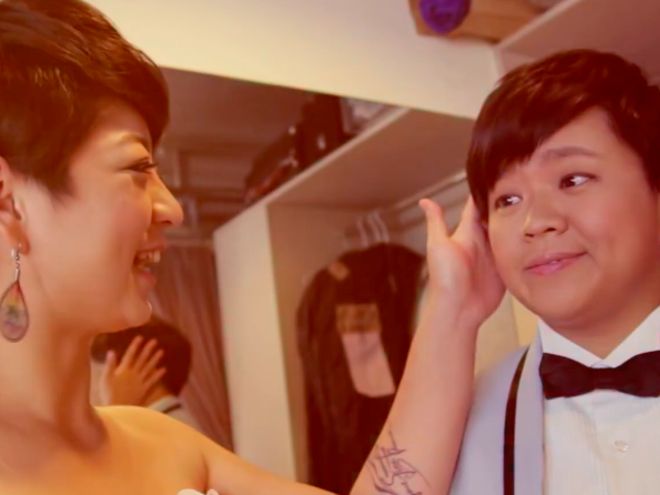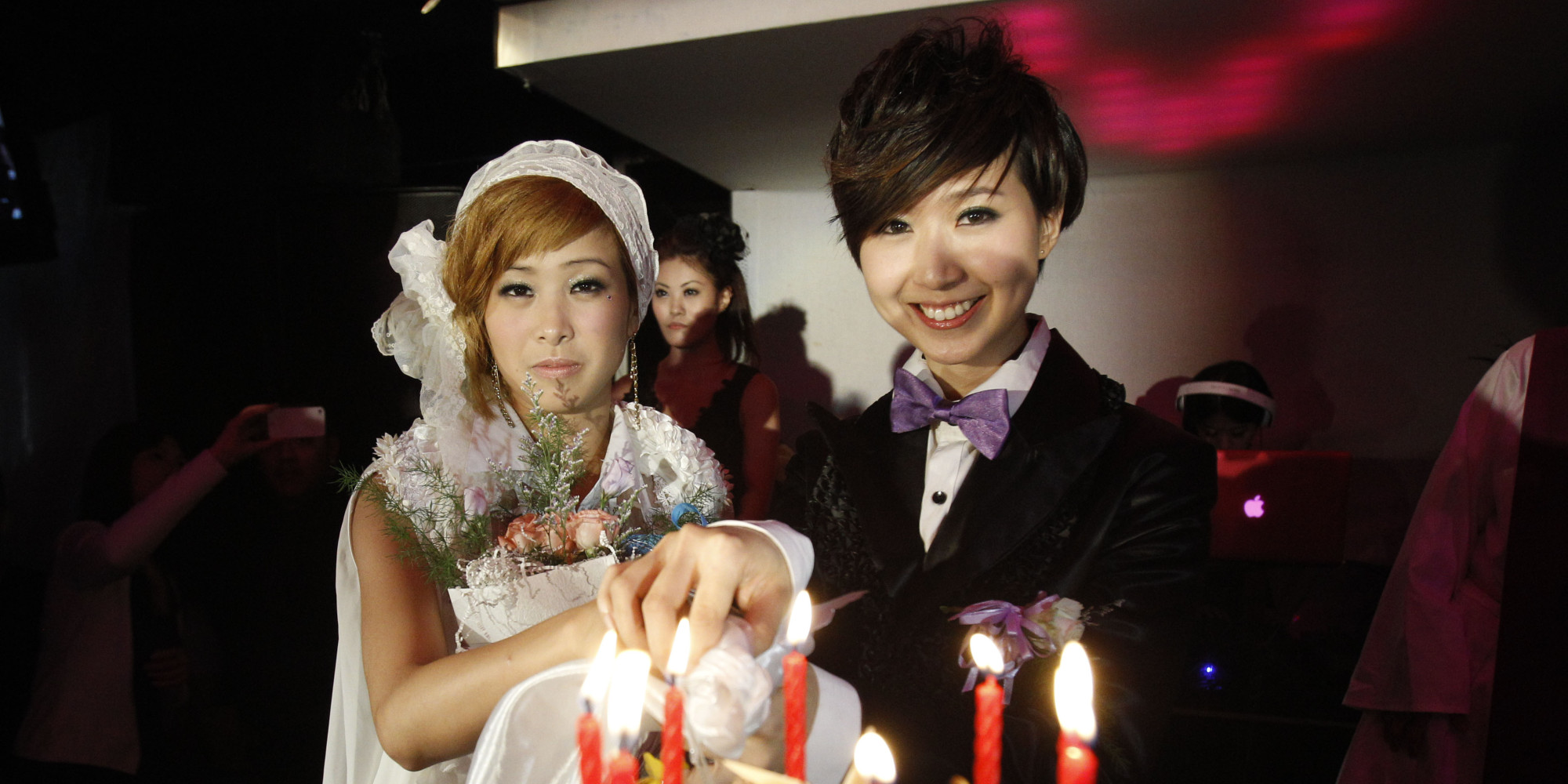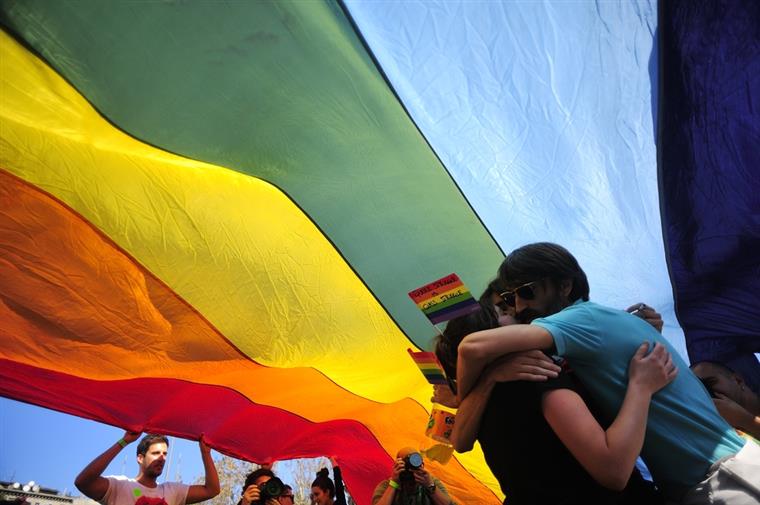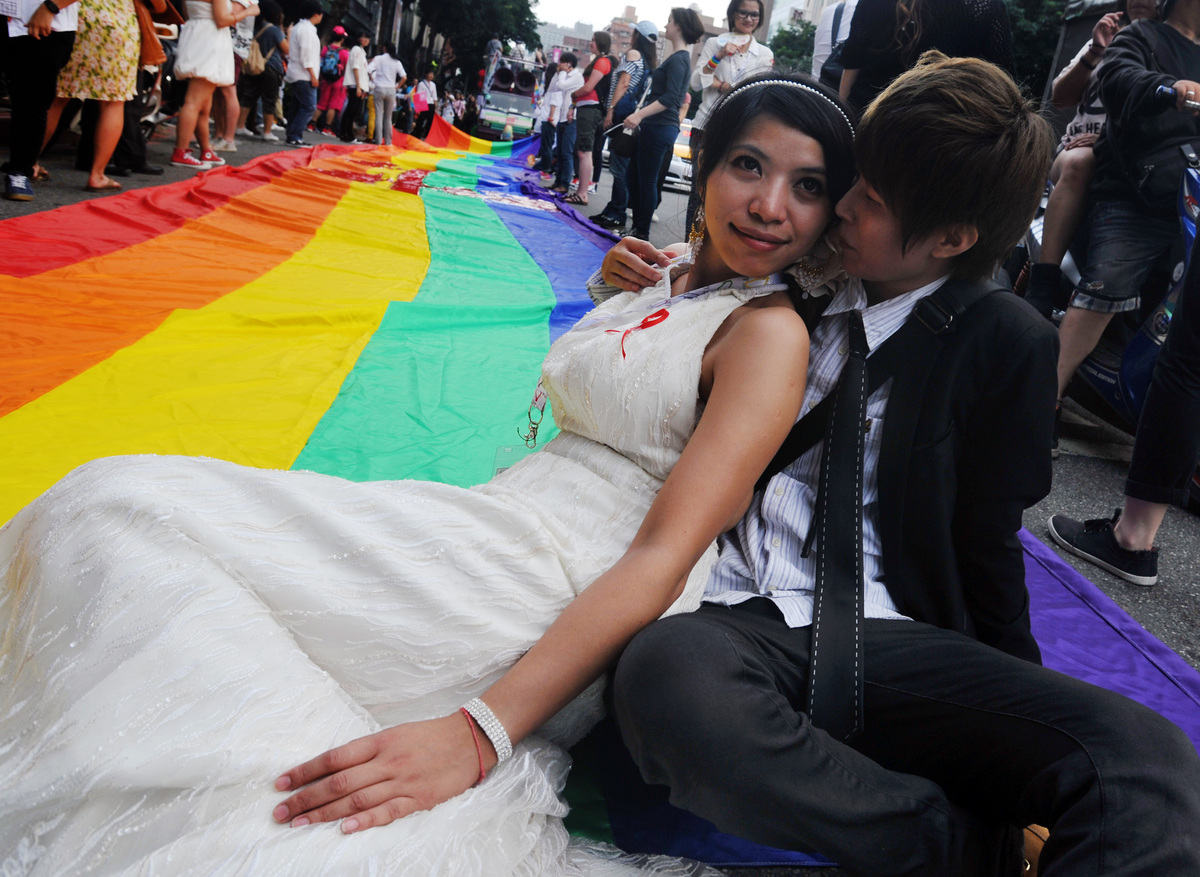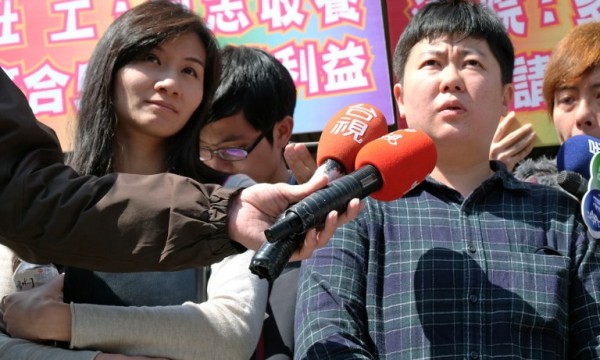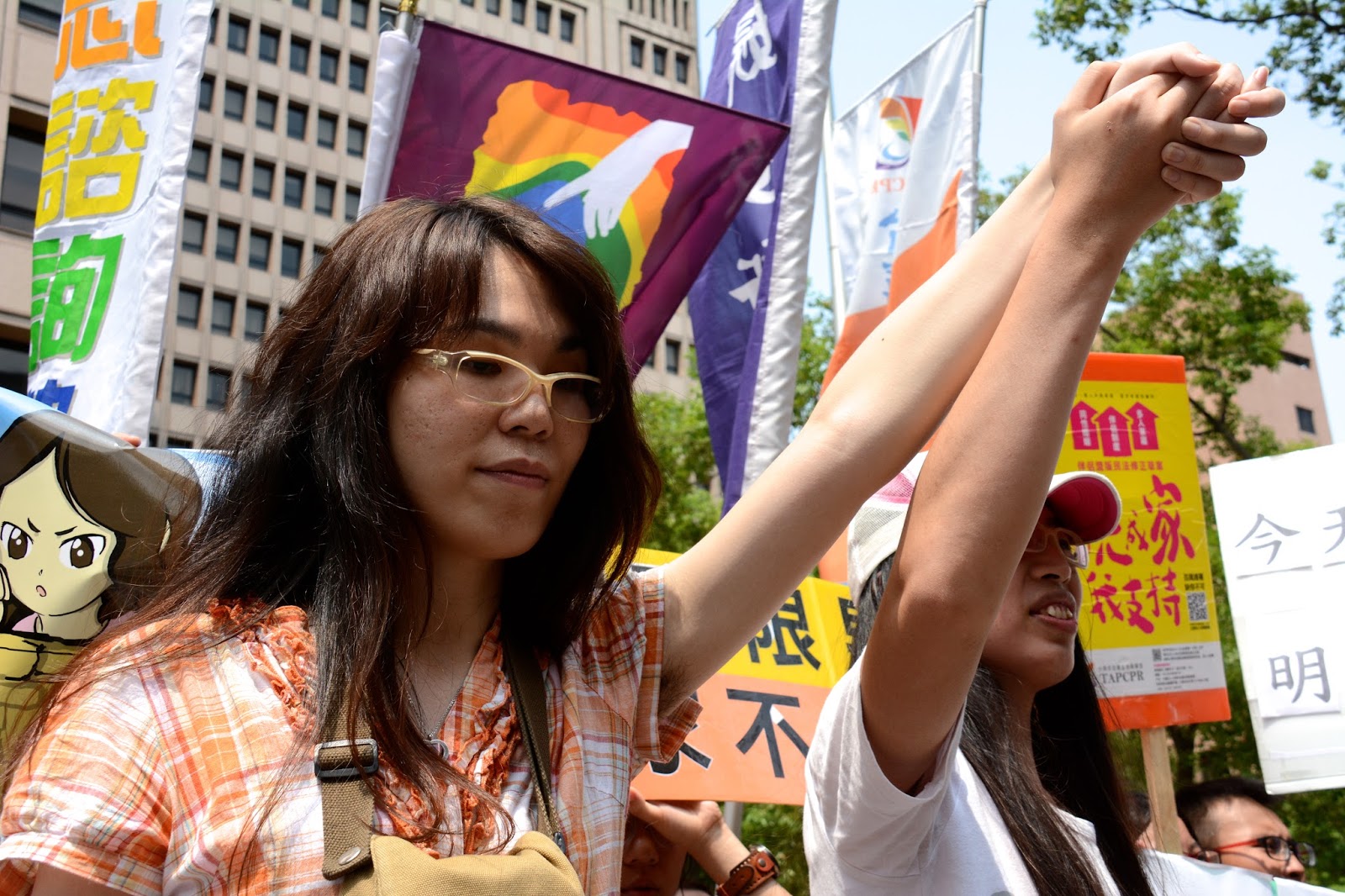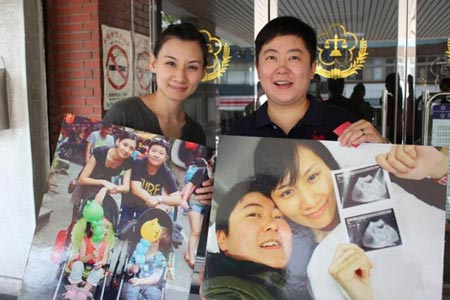On Thursday, the Taipei High Administrative Court rejected a lesbian couple looking to register their union.
In 2017, a court ruling gave the government two years to approve a marriage equality law, but sadly no legislations has passed yet.
The couple, Jennifer Lu and Chen Ling, are the third same-sex couple to be turned down by the court since October 2017.

They were part of a group of 30 couples who went to the Zhongzheng District office in 2014 to register as married. After the group was turned away, the women were among three couples who filed suit. (The other two cases were dismissed last year.)
In a statement, the court said household registration offices currently don’t have any legal standing to register same-sex marriages.
Last May, the Constitutional Court issued a landmark ruling requiring the Legislative Yuan to pass marriage equality legislation within 16 months.
Activists are urging the government to move swiftly to comply.
Activist Chi Chia-wei told the court.
“Society recognizes gay people have the same needs. They are normal people wanting to build normal relations and the law should include them.”
The country of 23.5 million will likely be the first in Asia to legalize same-sex marriage.
President Tsai Ing-wen came out in support of marriage equality in 2016, stating, “Every person should be able to look for love freely, and freely seek their own happiness.”
